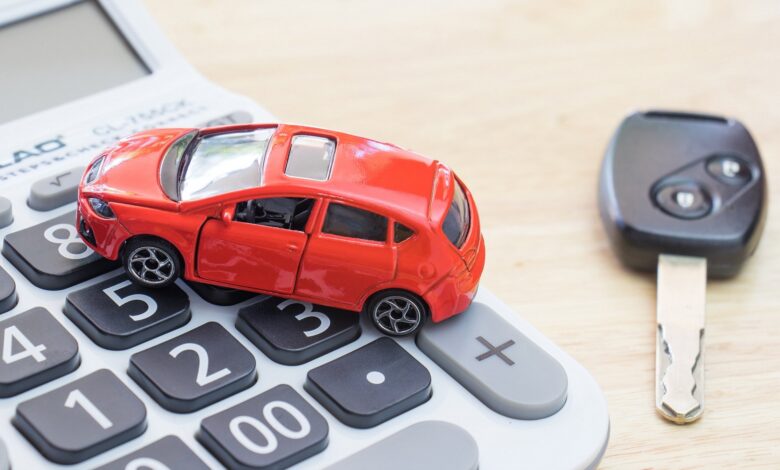
Why Personal Car Insurance May Not Cover Business Use
For small businesses, the line between personal and commercial vehicle use often overlaps. While personal car insurance offers you protection from the legal and financial problems related to car accidents, its protection might not extend to accidents that happen during business-related transactions.
If you’re a small business owner stuck between getting personal or commercial car insurance, you’ve come to the right place for answers. Read on to learn why personal car insurance may not cover business use. But first, let’s talk about the difference between both options.
1 What Is Personal Car Insurance?
Private passenger vehicles are covered by an insurance policy from personal car insurance. This protects drivers against economic loss in case of an accident that causes bodily injury or property damage. One example of a high-quality policy provider is GEICO auto insurance. They offer some of the best rates in the market—they’re also one of the most accessible providers.
Most personal insurance plans expressly exclude commercial use from their policies. In other words, if you get in an accident while driving to work or some other business-related event, your insurance provider will likely deny your claim.
Some personal vehicle insurance may offer limited coverage for commercial use. To find out if your insurance provider offers the same privilege, contact the company or ask the agent that drew up your insurance policy.
2 What Is Commercial Car Insurance?
If your small business owns a commercial vehicle, you’re going to need business vehicle insurance. Personal and commercial auto insurance both cover legal costs, bodily harm, and property damage resulting from car accidents. The difference is that commercial auto insurance typically covers higher claims, a wider range of vehicles, and more complicated legal concerns.
Commercial car insurance often includes all the company’s workers in the coverage. This means every single one of your small business employees can operate the company car and be protected by the company vehicle insurance. As a result of this situation, the prices offered to you by your commercial car insurance provider will be dependent on your employees’ driving records, background, and other factors.
Commercial car insurance may also have higher liability limits than personal policies. It can be used to cover:
- Vehicles used to make deliveries
- Vehicles used to deliver equipment
- Vehicles used to drive clients or employees to different locations
- Vehicles used to haul heavy cargo
3 Does Personal Car Insurance Cover Commercial Use?
In most cases, personal auto insurance does not cover commercial use. If you don’t have supplemental insurance coverage, you should avoid using your vehicle for work. Otherwise, you might not be able to file a claim.
One of the best ways to manage business risks is to keep your business and personal transactions separate at all times. If you’re a small business owner and need to run errands for your company, using a personal vehicle would be unwise. Thus, getting commercial car insurance to minimize liability can help ensure that you and your employees are safe from overwhelming financial burdens.
Nonetheless, there may be a few instances when personal car insurance might be enough to cover business-related accidents. These are the situations that your auto insurance might consider:
- Personal driving (e.g., business trips, commuting to work, visiting friends or family)
- Business meetings (e.g., trip out of town for a conference)
- Single worksite (e.g., you only use your car to drive from home and to work then back)
4 Why Are Business Vehicles Considered High-risk?
Given that commercial vehicles are on the road more frequently than other vehicles, insurance companies regard them as greater risks. A businessman who travels to several offices and meetings each week is more likely to get into a costly accident than those who limit their drives between home and work.
Your firm will almost certainly need commercial auto insurance if you or your workers drive company-owned vehicles. You may also require hired and non-owned auto insurance (HNOA) if you use your vehicle for business reasons, e.g., errands, deliveries, or client meetings.
5 What Is Non-owner Auto Insurance?
An HNOA is an insurance policy that covers expenses related to car accidents involving employees who are driving their vehicles for business purposes. It also offers protection for business-leased vehicles driven by company employees.
Most HNOA policies only cover legal bills that result from the accident. Repairs, replacements, and medical bills are still typically paid for by the policyholders.
An HNOA is an insurance policy that covers expenses related to car accidents involving employees who are driving their vehicles for business purposes.
The Bottom Line
Personal car insurance wouldn’t be enough to protect small business owners from hefty legal fines if an accident were ever to happen. The best choice for you in this situation is to get commercial car insurance or an HNOA. With it, you won’t have difficulty making claims with your insurance provider.













